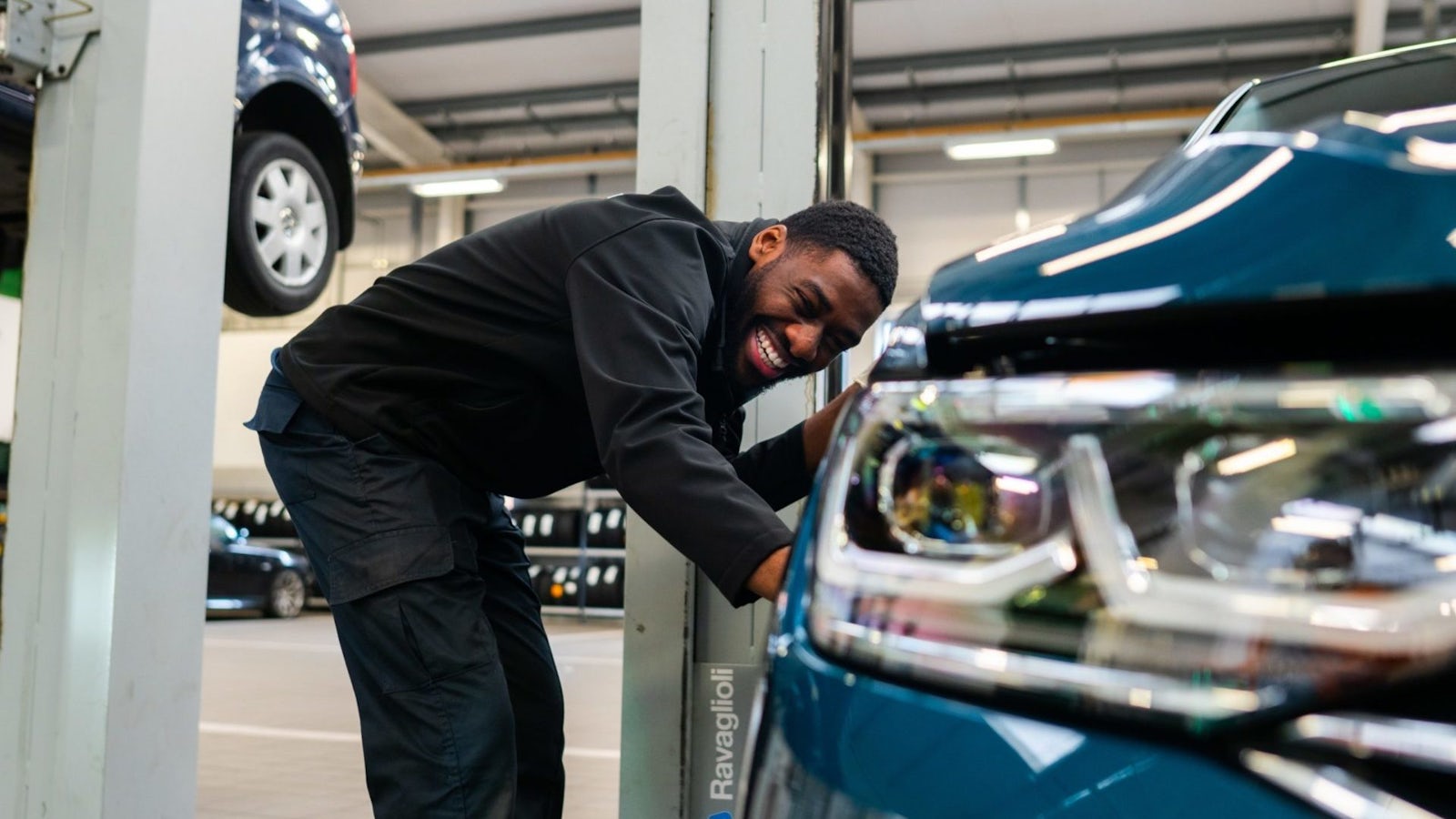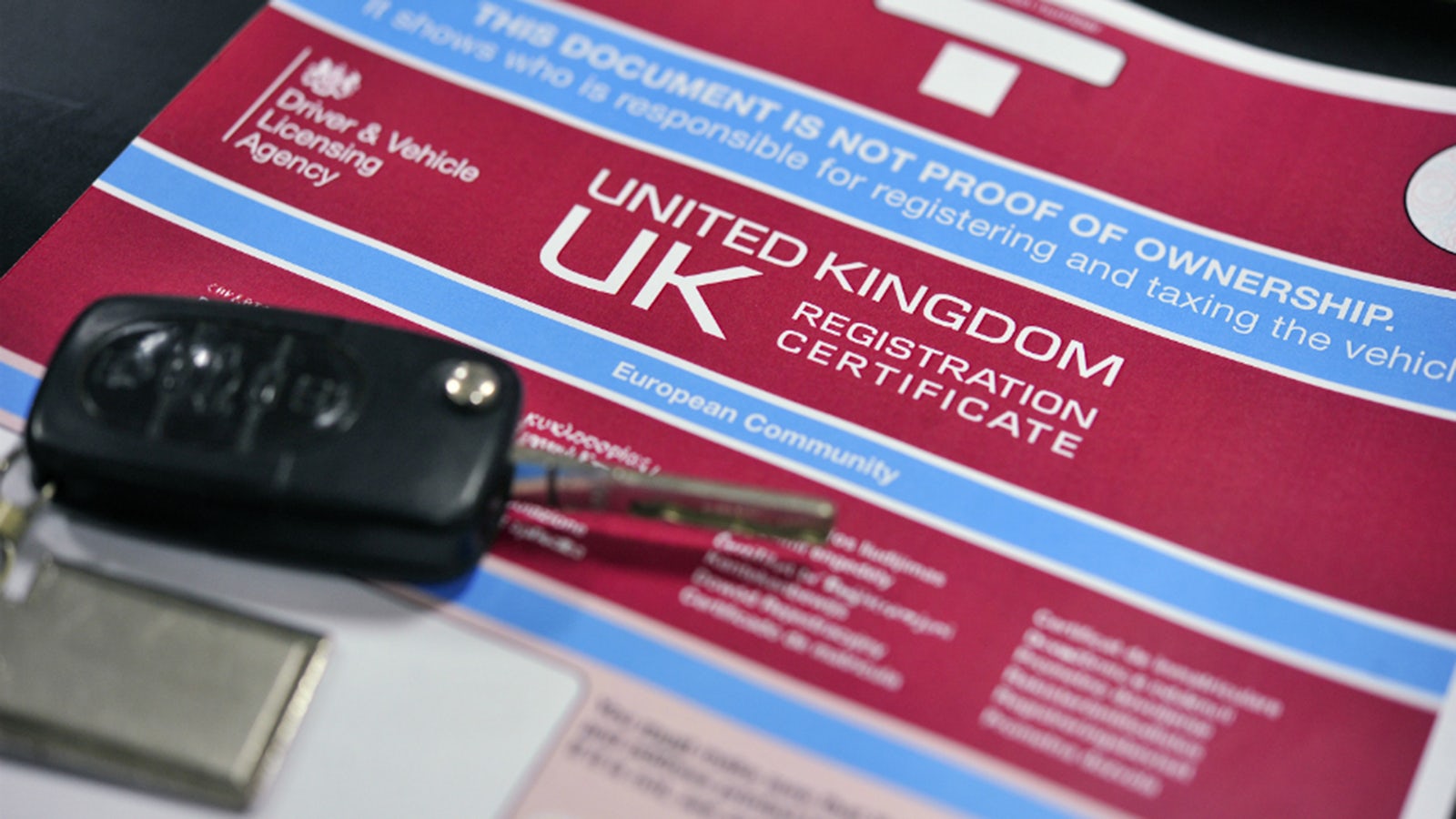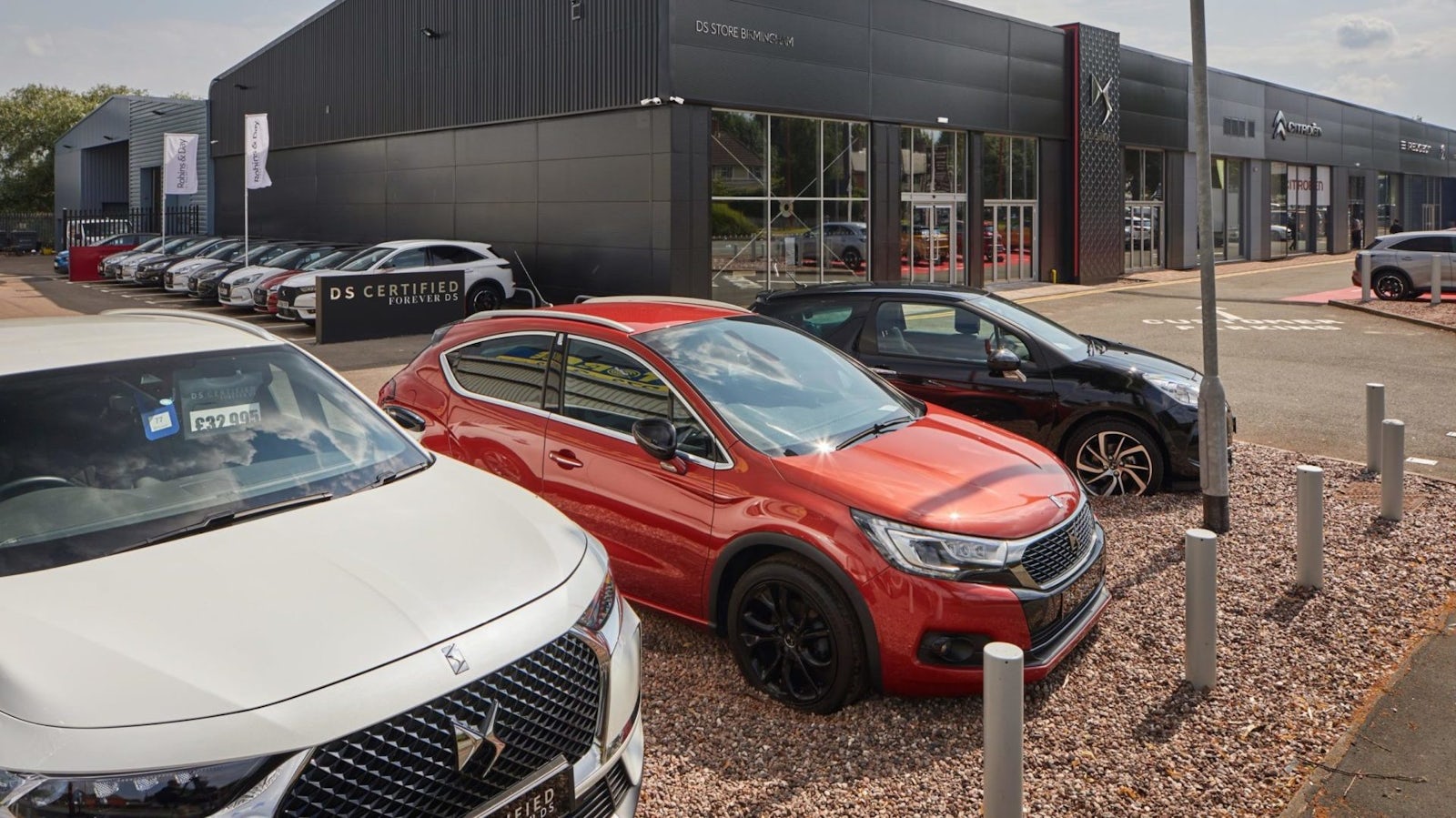Your rights when buying a used car from a dealer, private seller, or auction
February 17, 2023 by carwow staff

Buying a used car isn’t without its risks, however you do have some rights as a consumer to protect you from any dodgy deals.
Buying a car is often second only to a house purchase in terms of expenses, that’s why many people prefer to buy a used vehicle to soften the financial blow. But regardless of the cost, you’ll want to make sure that there is some sort of recourse just in case your Lamborghini turns out to be a lemon.
The good news is that there are various laws designed to protect you even if your car isn’t new, and in this article, you can find out what your rights are and how they affect you.

Your rights when buying a used car from a dealer
Buying from a dealer may cost a bit more than if you went to a private seller but you do benefit from additional legal protection. If you buy through carwow, all used cars on our site are from manufacturer-approved dealers and they undergo a thorough check before being put on sale.

For added peace of mind, you can also opt for an Approved Used car, these tend to cost a little more but will have had additional checks carried out and tend to come with extended warranties. In case something does go wrong there are a number of legal remedies at your disposal:
Consumer Rights Act
The Consumer Rights Act (2015) was put into law to protect consumers across a broad spectrum of purchases, and this includes motor vehicles. The Act stipulates that when buying from an official car dealer the vehicle must:
- Be of satisfactory quality: It should be in a condition that is expected of its age, roadworthy and without any obvious defects
- Be fit for its particular purpose: It needs to be able to carry out the tasks expected of a vehicle of its type: towing, off-roading etc.
- Be as described: It needs to fit the description promised by the dealer, whether that be its condition, or specification level.
In essence, these points mean that the dealer is responsible for any misrepresentation or defects on the vehicle when it is sold, but if you are made aware of these issues prior to purchase then they are not liable. Normal wear and tear do not form part of these stipulations above.
If the issues you have with the car fall into one of the categories above, you are entitled to reject the deal within 30 days and request a full refund.

If you discover the problem between 30 days and 6 months of purchase, you may still be able to get the vehicle replaced or repaired by the dealer or, failing that, receive a refund for it. The dealer has one chance to repair the vehicle and the onus is on them to prove that the fault was not present at delivery.
Proving that a fault was present at delivery more than 6 months after purchase requires more effort on your part, but you are still entitled to make a claim if you can prove it. The age of the vehicle and wear and tear during your time with it may affect the extent to which you can claim. It is also worth reading through your warranty to see what it covers over and above the Consumer Rights Act (CRA).
The CRA provides protection up to six years after you make a purchase (five years in Scotland), but this does not mean that the car has to last for six years – only that you have six years to take a retailer to the Small Claims Court if they have potentially breached your statutory rights.

Consumer Protection from Unfair Trading Regulations
The Consumer Protection from Unfair Trading Regulations (2008) or CPR also affords you some additional protection. These regulations were introduced to stop traders from engaging in unfair business practices when it comes to the promotion, sale and supply of products (cars in this case) to and from consumers.
The CPR covers a broad range of unfair business practices that can be narrowed down to a few main points. Dealers cannot do or carry out:
- Misleading actions: Providing false information through knowingly incorrect statements. These can range from misleading information about the number of previous owners to tampering with the odometer reading.
- Misleading omissions: Leaving out pertinent information about the vehicle. Such as not telling you that the mileage figures don’t match the MOT records or that the car was involved in an accident.
- Aggressive behaviour: Using coercion or pushy sales tactics to try to sell you additional services such as warranties and optional extras.
- Fail to act in line with acceptable trading practices: Dealers need to act in good faith and in line with accepted business practices when dealing with customers.
The CPR also outlines a number of banned business practices which cover such things as falsely claiming to be a private seller, claiming to be endorsed by public or private bodies when this is not the case and using dishonest advertising methods.
The simplest way to determine whether the dealer you bought the car from hasn’t abided by the Consumer Protection Regulations is to ask yourself whether you would have changed your purchasing decision if you had been made aware of all the pertinent details.
If all else fails and the dealer is unwilling to resolve the issue, then you can contact the Motor Ombudsman which is an independent organisation that deals with dispute resolution.
Consumer Credit Act
The Consumer Credit Act can give you additional protection when buying a car: under Section 75 of this Act, if you use a credit card (NB: not a debit/bank card), then the credit-card company is jointly liable with the dealer if you encounter difficulties, for purchases valued at £100 to £30,000 – even if you have only paid for part of the transaction on credit card (and that part does not even have to be £100).
This can be of particular use if the company you bought from goes bankrupt or ceases trading. You can approach the credit card company at the same time as raising any complaint with a dealer, though you will not receive refund or recompense from one of these, not both.
Your rights when buying a used car from a private seller
Buying from a private seller can yield a saving compared to going through a dealer, but if the car has any issues you won’t have as many rights as a customer. Aside from the basic requirements that the seller must have the right to sell the car and that it must be roadworthy, the Sale of Goods Act also stipulates that the car must be as described by the seller.

Sale of Goods Act
If the car you buy doesn’t match the description of the seller, then you may have recourse through the Sale of Goods Act (1979). This Act states that the car sold should be:
- As described in the advert (or by the seller)
- Fit for purpose
- Of an acceptable quality
These points are essentially the same as the ones covered by the Consumer Rights Act which applies to new and dealer-approved used cars, but your recourse here will usually be in the form of some sort of compensation from the seller rather than a full refund. If the issue for which you are claiming compensation for was listed by the seller beforehand then you may have no rights to claim at all.
In most cases you can request the seller to pay for repairs but if they refuse to do so you may need to contact an alternative dispute resolution (ADR) scheme or take the matter to small claims court, which can be an expensive option.
The best way to avoid this sort of situation is to thoroughly inspect the car before you buy.
Your rights when buying a used car from a live auction
In short, there aren’t many: buying a car at auction is best left to professional traders, or the very well informed.
Depending on the auction and its terms and conditions, there may well be a contractual clause exempting the auction house from liability under the CRA if there is something wrong with the car, which will most likely have been purchased on a ‘sold as seen’ basis. In theory you could pursue the person selling the car through the auction, but this may be rather difficult, so should not be relied upon as a method of recourse.
Do your homework before buying a used car
While the various laws and regulations do provide a legal safety net if something goes wrong, there are a number of practical checks you can do to lower the chances of encountering a problem down the line.

Whether buying from an approved dealer or someone you met down the pub, be sure to check the following things before parting with your money:
Documentation and paperwork
Be sure to ask the seller to show you the V5C (vehicle logbook), this is the official record of who is the registered owner of the car. If they don’t have it, walk away.
You can check up on a car’s MOT history using its registration number. By checking the information on this government website you can verify whether it has a valid MOT, what sorts of issues it has had in the past when being tested and you can verify its mileage.

Ask to see the vehicle’s service history, it should be stamped by an authorised dealer at the manufacturer-prescribed service intervals. Some cars also have this information stored electronically by the dealer and can be accessed by providing the vehicle’s VIN number to them.
Vehicle Check
A nearly new manufacturer-approved car should have excellent paintwork and an interior that still looks and smells fresh. You can expect a few blemishes and minor marks but make sure to point out any curbed alloys or major scuff marks to the dealer beforehand.

If you are buying an older car from a private seller then look out for any signs of resprays (overspray under the bonnet, deviations in paint finish on panels) and accident damage. If the front bumper is blemish free on a seven-year-old car, then it has most likely been repainted but this doesn’t mean it was involved in an accident. Accident repaired cars can still be perfectly serviceable but need to be listed as such by the seller.
Check the tyres to ensure that they have enough tread left and that there is no uneven wear across the tread pattern. This could indicate a number of issues ranging from misalignment and suspension damage to incorrect inflation.
Modified vehicles may be more expensive to insure and while some may look good, the changes can sometimes lower the value of the car or even be illegal.

Every car regardless of its age needs to be in a roadworthy condition, so all the lights and controls need to be functioning correctly. A faulty electronic window switch on an older car is not a roadworthy issue but may be a negotiating tool when discussing the price.
Test Drive
If the car fits the description of the seller, then the final test is to take it for a drive. Dealers should have insurance that covers you for this, but you will need to have arranged temporary insurance – either through your own provider or a ‘temp cover’ company- if you are buying from a private seller.

Listen out for any odd sounds emanating from the engine bay or the suspension. The car should not pull to the side when on a level road and even the smallest city car should feel responsive. Look out for juddering brakes, jerky gear changes in automatics or hard clutch pedals in manuals as these can all indicate an expensive repair in the near future.
Buy your next car (and sell your old one) with carwow
Ready to find a great used car? Then take a look at the latest offers on your preferred model through carwow.
A network of trusted dealers will come to you with their best offers. There’s no need to haggle or negotiate and you can compare your offers in one place without even having to leave your home.
If you’re thinking of selling your old car, you can do that through carwow, too. Again, a network of dealers will come to you with their best offers for your vehicle — no haggling, no stress, and the price you’re offered is the price you’ll get. The dealership will make payment and collect your car.















